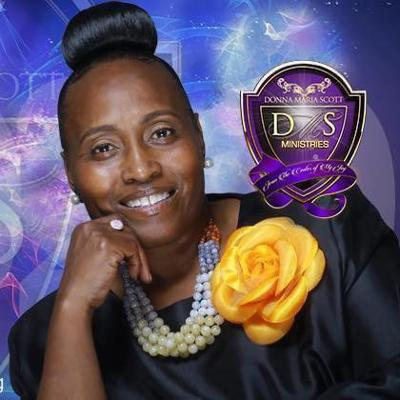The Power of Voting:
Shaping Our Future
Melody Fogarty

In the fabric of democracy, voting stands as a crucial thread that binds the system together. It's more than just a civic duty; it's a powerful tool that allows citizens to influence the direction of their government and society. In light of the upcoming 2024 election, it’s important to understand that this election isn't just about individual personalities or partisan battles. At its core, it is a choice between dictatorship and democracy.
**Dictatorship vs. Democracy**
The fundamental difference between a dictatorship and a democracy lies in the distribution of power. In a dictatorship, power is concentrated in the hands of one or a few, often leading to the suppression of dissent and the erosion of individual freedoms. Conversely, a democracy thrives on the active participation of its citizens, ensuring that power remains distributed and accountable. Voting is the primary means by which we uphold democratic values, ensuring that our leaders are chosen by the people and for the people.
**The Impact of Voting for a Third-Party Candidate in U.S. Elections**
In the United States, the two-party system dominates the political landscape, with the Democratic and Republican parties holding the majority of power. This binary structure often leaves third-party candidates at a significant disadvantage. While voting for a third-party candidate can be seen as a way to express dissatisfaction with the main parties, it can inadvertently lead to outcomes that are not aligned with the voter's intentions, particularly in a highly polarized and tightly contested election.
The Reality of the U.S. Electoral System is simply…the U.S. operates on a first-past-the-post electoral system, where the candidate with the most votes wins, even if they do not secure an outright majority. This system inherently favors the two major parties and marginalizes third-party candidates, making it extremely difficult for them to win significant numbers of votes.
Further, there are significant consequences of Third-Party Voting such as:
1. **Vote Splitting**: When voters choose a third-party candidate, they effectively split the vote of their preferred ideological camp. For instance, if a significant number of left-leaning voters opt for a third-party candidate instead of the Democratic nominee, it could dilute the vote share needed to defeat the Republican candidate. This vote splitting can result in the Republican candidate winning with a plurality rather than a majority.
2. **Trump’s Built-in Support**: As noted, former President Donald Trump has a substantial base, accounting for approximately 45% of the electorate. In a close race, the remaining 55% of voters are divided among various candidates, including the Democratic nominee and any third-party candidates. If even a small percentage of this 55% opts for a third-party candidate, it can tip the balance in favor of Trump.
3. **The Heritage Foundation’s Project 2025**: Voting dynamics have significant policy implications. For instance, if Trump were to win due to third-party vote splitting, the policies outlined in the Heritage Foundation’s Project 2025 could come to fruition. This project includes a comprehensive plan for conservative governance, which may not align with the values and priorities of voters supporting third-party candidates. Therefore, inadvertently contributing to such an outcome by voting for a third-party candidate could lead to policies that contradict their intentions.
Given the stakes, strategic voting becomes crucial. This involves casting a vote not just based on personal preference, but also on the broader impact that vote will have on the election's outcome. In a two-party system, voting strategically often means supporting the candidate with the best chance of winning against the least preferred candidate, even if they are not the voter's ideal choice.
While voting for a third-party candidate can be a statement of principles and dissatisfaction with the major parties, it can also have unintended consequences, particularly in a tight race. In the context of the 2024 election, where Trump’s substantial base could easily secure a win with the right conditions, voting for a third-party candidate could inadvertently contribute to an outcome that many voters might want to avoid. Understanding the dynamics of the U.S. electoral system and the potential repercussions of third-party voting is essential for making informed decisions at the ballot box.
**Not Voting is Still a Vote**
One common misconception is that abstaining from voting is a neutral act. However, not voting indirectly supports the candidate you least prefer. Every election has significant consequences, and every vote counts. By not participating, you effectively increase the chances of an outcome you might oppose. It’s imperative to recognize that your silence in the ballot box speaks volumes and shapes the future just as much as a cast vote.
**Religious Freedom and Mutual Respect**
Inflicting your religious beliefs on others only opens the door for others to impose their beliefs on you. In a pluralistic society, the freedom to practice one's religion is protected by ensuring that this freedom is equally extended to all. Democracy is built on mutual respect and the understanding that freedom for oneself cannot be maintained by denying freedom to others. Voting is a way to protect these principles, promoting policies that respect and uphold individual rights and freedoms.
**The Future is in Your Hands**
The future is not a distant, abstract concept; it’s shaped by the decisions we make today. If the choices presented to you are unsatisfactory, it's a call to action, not apathy. Democracy is dynamic, and it requires continuous engagement. Complaining about who’s running for office without being willing to participate or even run yourself only perpetuates the status quo. Active involvement, whether through voting or running for office, is essential in creating the change you wish to see.
That said, if you choose dictatorship, or you simply choose not to vote for democracy, understand you are voting for Project 2025 which includes the following:
1. **School Discipline and Title VI Enforcement**
- The mandate recommends continuing the Trump Administration’s policy of rescinding Obama-era guidance on school discipline and correcting alleged overreach in Title VI enforcement. This could reduce federal oversight of discriminatory practices in schools, potentially leading to increased disparities in disciplinary actions against Black students.
2. **Disparate Impact Standard**
- The document suggests that the next administration should clarify that Title VI of the Civil Rights Act does not include a disparate impact standard. This change would mean that policies or practices that result in a disproportionate adverse effect on African-Americans, even if unintentional, would no longer be subject to federal scrutiny, potentially allowing discriminatory practices to persist unchecked.
3. **Equity in IDEA Regulations**
- The mandate calls for rescinding the regulation requiring states to consider race and ethnicity in the identification, placement, and discipline of students with disabilities. This could lead to less attention to racial disparities in special education, potentially exacerbating inequalities in access to necessary educational resources for Black students.
4. **Civil Rights Act Enforcement**
- The document advocates for significant action to prevent the Civil Rights Act from being used to address disparities through the disparate impact standard. This would likely reduce the effectiveness of civil rights enforcement in addressing systemic discrimination affecting African-Americans.
While these policies do not directly call for a return to Jim Crow segregation or slavery, they could significantly undermine protections against racial discrimination. The cumulative effect could lead to increased systemic inequality and reduced federal oversight, potentially allowing discriminatory practices to flourish, which would disproportionately harm African-Americans.
In closing, voting is a powerful act of civic engagement that shapes our government and society. It’s a safeguard against dictatorship, a protector of mutual freedoms, and a testament to the value of democracy. In the upcoming 2024 election, remember that your vote matters. It’s not just about choosing a candidate; it’s about choosing the future. Embrace your role in this democratic process, and make your voice heard. The future is up to you.
Regards,
Melody
Sparkman Articles











